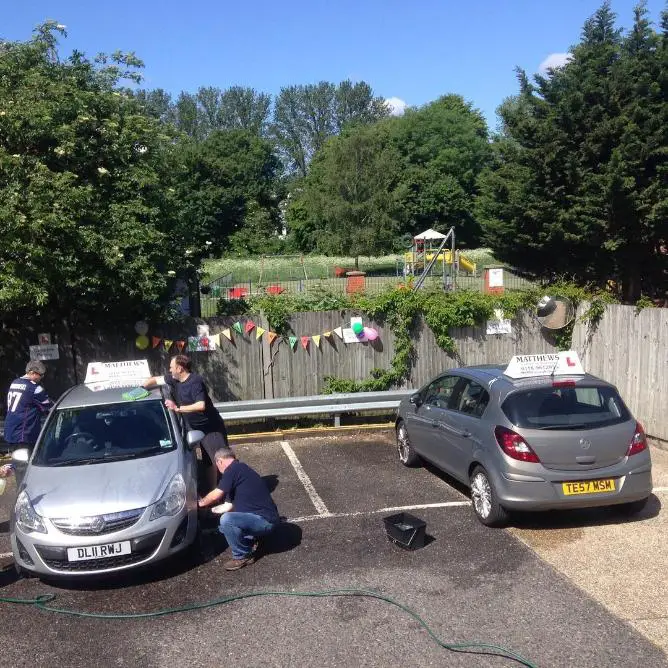From artisanal crepes to rebellious cheesecake waffles, Reading's breakfast rebels are transforming morning meals. These seven spots will revolutionize how you start your day.
Controversial Redevelopment Plans for Reading Driving Test Centre
A contentious project to replace the Reading driving test centre with residential flats is moving forward, sparking debate among local residents and stakeholders. The driving test centre, located in Elgar Road South, Katesgrove, is slated for closure next Spring, paving the way for its demolition and subsequent redevelopment.
Transformation on the Horizon
The proposed plan aims to construct 16 new flats on the site, signaling a significant change in the area's landscape. This development has drawn attention due to its potential impact on local infrastructure and the loss of a longstanding community facility. As progress continues on this controversial project, questions arise about the future of driver testing in Reading and the broader implications for urban planning in the area.
Project Details and Timeline

The controversial redevelopment project targeting the Reading driving test centre is making steady progress. Located in Elgar Road South, Katesgrove, the test centre is scheduled to close its doors next Spring. This closure will mark the end of an era for the facility and pave the way for its demolition, making room for the proposed residential development.
The plans call for the construction of 16 new flats on the site, signaling a significant transformation of the area. This shift from a public service facility to residential units has sparked debate among local residents and stakeholders, raising questions about the changing face of the neighborhood and its impact on the community.
Community Impact and Concerns
The proposed redevelopment has not been without its critics. The project's controversial nature stems from various concerns raised by local residents and community members. Chief among these is the loss of a longstanding community facility that has served generations of Reading's aspiring drivers.
The closure of the driving test centre also raises practical questions about the future of driver testing in Reading. With the facility set to shut down, it remains unclear how this essential service will be provided to the local population going forward. This uncertainty has added to the contentious nature of the redevelopment plans.
Urban Planning Implications

Beyond the immediate impact on driving tests, the project has broader implications for urban planning in Reading. The transition from a public service building to residential flats reflects ongoing changes in land use and development priorities within the city.
This redevelopment raises important questions about the balance between housing needs and the preservation of community facilities. As Reading continues to evolve, projects like this one highlight the challenges faced by urban planners in meeting diverse community needs while also addressing housing demands.
Looking Ahead
As progress continues on the redevelopment project, all eyes will be on the site's transformation. The closure of the driving test centre next Spring will mark a significant milestone, signaling the beginning of the area's physical transformation.
The construction of the 16 new flats will undoubtedly alter the landscape of Elgar Road South and the wider Katesgrove area. How this change will be received by the local community, and its long-term impact on the neighborhood, remains to be seen.
As the project moves forward, it will likely continue to be a topic of discussion and debate among Reading residents, urban planners, and local officials. The outcome of this redevelopment could set precedents for future projects in the area, making it a key case study in Reading's ongoing urban development.
Balancing Progress and Preservation

The redevelopment of the Reading driving test centre represents a microcosm of the challenges faced by growing urban areas. As cities evolve, the tension between progress and preservation becomes increasingly apparent. This project highlights the delicate balance between meeting housing demands and maintaining essential community services.
The transformation of a public facility into residential units raises questions about the changing priorities in urban development. It prompts a broader discussion on how cities can grow sustainably while ensuring that the needs of all residents are met. The outcome of this project could potentially influence future urban planning decisions in Reading and beyond.
Adapting to Change
The closure of the driving test centre will necessitate adaptations from the local community. Residents who have long relied on the convenience of a nearby testing facility will need to adjust to new arrangements. This change may have ripple effects on local businesses that have catered to test-takers and instructors.
Moreover, the influx of new residents into the 16 flats will alter the neighborhood's dynamics. This shift in population could bring both opportunities and challenges for the existing community, potentially affecting local services, traffic patterns, and social interactions.
A Test Case for Future Development

As Reading continues to grow and evolve, the redevelopment of the driving test centre site serves as a test case for future projects. The way this project is handled, from planning to execution, and its subsequent impact on the community, will likely inform future decisions on similar developments.
The controversy surrounding this project underscores the importance of community engagement in urban planning processes. It highlights the need for transparent communication between developers, local authorities, and residents to ensure that development projects align with community needs and values.
Shaping Reading's Future
Ultimately, the redevelopment of the driving test centre is more than just a change in land use; it's a part of the ongoing narrative of Reading's urban development. As the project progresses, it will contribute to shaping the city's future landscape, both physically and socially.
The debates and discussions sparked by this project reflect the active engagement of Reading's residents in their city's future. This level of civic participation, regardless of individual stances on the project, is a positive sign for the health of local democracy and community involvement in urban planning processes.
